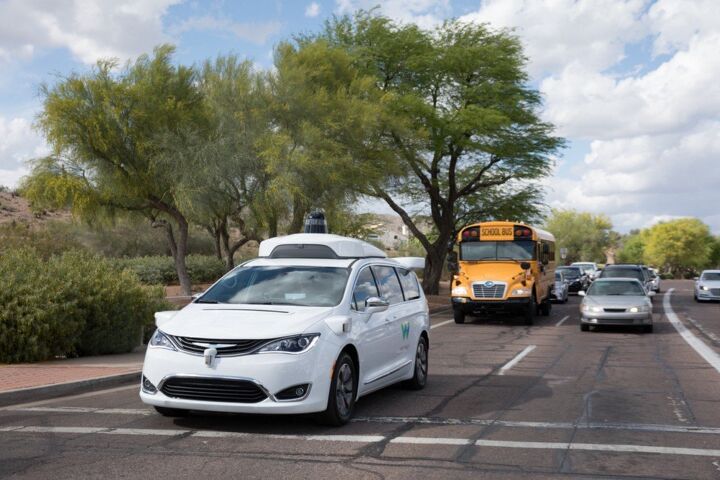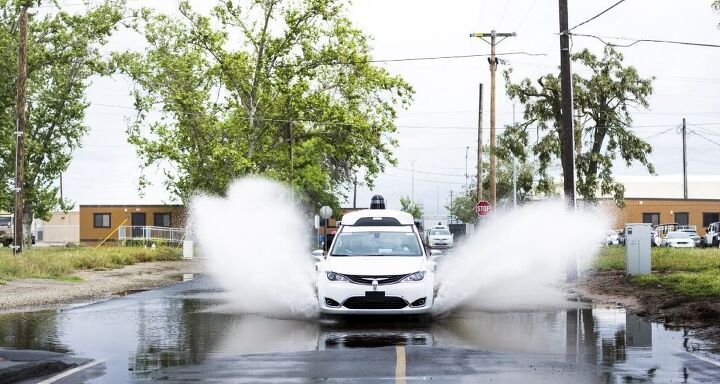#DailyCommute
Waymo to Purchase 'Thousands' of Chrysler Pacificas for Self-driving Duty
Waymo, the self-driving division of Google’s parent company Alphabet, just announced it has reached a deal to purchase a buttload of Pacifica minivans from Fiat Chrysler Automobiles. Alright, to be fair, it didn’t actually use the term “buttload.” It said Chrysler would provide “thousands” of units, which will ultimately be outfitted for autonomous driving.
Unfortunately, neither company seems willing to disclose an official count. Waymo currently has around 600 self-driving Pacificas in its fleet, so even an extra thousand vehicles would equate to a multi-million dollar deal and the exponential growth of its autonomous development program.
“With the world’s first fleet of fully self-driving vehicles on the road, we’ve moved from research and development to operations and deployment,” Waymo CEO John Krafcik said in an official statement. “These additional vehicles will help us scale.”
Video: Check Out Waymo's Self-Driving Cars in Action
After spending most of last week showing off its tech to the media, Waymo is launching its driverless pilot program in Arizona. While the rides won’t technically begin for a few months, you can already get a taste of the action via video footage of company’s trio of testbed Chrysler Pacificas.
It’s impressive to see the Pacificas not run down any pedestrians, especially since none of them seemed to notice being approached by a van without a driver.
During a keynote speech at a tech conference in Lisbon, Portugal, Waymo CEO John Krafcik showed video of the firm’s test vehicles operating on public roads without any human supervision. “This wasn’t just a one-time ride or a demo,” Krafcik told the crowd. “What you’re seeing now marks the start of a new phase for Waymo and the history of this technology.”
Is Human Involvement a Liability When It Comes to Autonomous Driving?
Commuting is awful. Unless you’re fortunate enough to have spartanly populated backroads between you and the office, that drive to work can be excruciatingly dull — with the only excitement coming from near misses and whatever terrible jokes drive-time radio offers up during that hour. When you get right down to it, most daily commutes are little more than unpleasant ways to add miles onto the odometer.
Of course, with the promise of autonomous driving, that experience is supposed to transform into a worry-free jaunt. But there’s a problem. Most self-driving systems of the near future will require operators to pay roughly the same amount of attention they do now. After all, if your car miscalculates a situation, you’ll want to be ready to take over the instant something seems awry. If that’s the direction we’re heading with this technology, I’m starting to think it might just be easier to automate all of our jobs instead of the the method we use to get to them.
However, at least one self-driving firm has abandoned the development of features that would require human intervention — leaving the car to make up its own mind in an emergency situation.


















Recent Comments